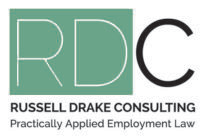In our previous newsletter, we introduced the option of Medical Retirement as an alternative resolution to Medical Incapacity in situations when an Employer is dealing with the long-term absence of an Employee through either non-work or work-related illness or injury.
Within this newsletter, we look more closely at Medical Incapacity.
So, what exactly is Medical Incapacity?
Medical Incapacity is the more widely known and used alternative process to Medical Retirement.
Correctly using this process allows an Employer to make a decision on the future employment of an Employee who has been absent from the workplace for a considerable amount of time, specifically where their absence has begun to have a significant impact on the operation of the business.
There are no statutory regulations related to the length of absence, instead this comes down to an assessment by the business as to how long they can sustain the Employee’s absence, and the impact this has on the business.
That being said, it would be premature to start a process for Medical Incapacity before an Employee has been absent from the workplace for approximately three (3) months, or where there is an absence of information that indicates the illness or injury recovery will be long term. The critical trigger point can often be whether the Employer believes that it is no longer able to cover the Employees role, or leave this role vacant. But don’t leave it too long! The Employee continues to accumulate annual leave entitlement whilst on ACC which could result in substantial annual leave liabilities and payments being incurred if termination occurs.
However, any decision on the Employee’s future employment status can only be made following a procedurally fair consultation process.
The ruling by the Employment Court in the case of Gillan v Amcor Flexibles (New Zealand) Limited 2018, reaffirmed the employer’s ability to dismiss an employee on medical grounds, especially where there is an ongoing health and safety risk of the Employee who was to seek to return to work.
Gillian was dismissed from his employment with Amcor Flexibles (New Zealand) Limited on the basis of medical incapacity due to his epilepsy and seizures at work. Gillian raised a personal grievance for unjustified dismissal which he won at the Employment Relations Authority.
However, Amcor challenged this decision due to the seizure Mr Gillian had suffered at work. A further investigation was undertaken, and medical information sought in order to understand the cause and future prognosis of Mr Gillian’s medical issue. Throughout this period, approximately eight (8) months, Mr Gillian remained absent from the workplace due to his medical condition.
It was therefore ruled that, based on Mr Gillian’s medical condition and the uncertainty over his ability to work safely given the workplace environment and the nature of the duties and responsibilities, that the decision to dismiss M Gillian satisfied s 103 (A) of the Act and Amor’s challenge to the determination was successful.
The case of Gillan v Amcor Flexibles (New Zealand) Limited 2018 demonstrates how any given case can be unpredictable and that no situation is ever the same.
Decisions regarding the termination of an Employee under the provision of Medical Incapacity can therefore lead to a personal grievance claim, reinforcing the importance of getting sound advice and ensuring procedurally fair processes are implemented at all stages.
This process involves a number of critical steps for example:
- Gathering the right information to support the process,
- Informing the employee of the possible outcomes
- Are there any possible alternative employment options.
Its important that as an employer, you are conscious that there are significant risks when implementing this process that could result in an Unjustified Dismissal claim.
If you find yourself in a situation such as this, please feel free to contact us on 078380018 and we will be more than happy to guide and support you through the process with any advice or documentation that you require.

